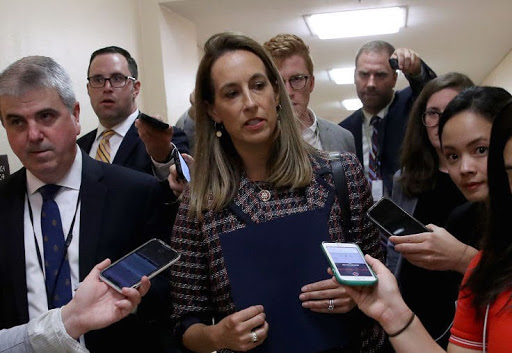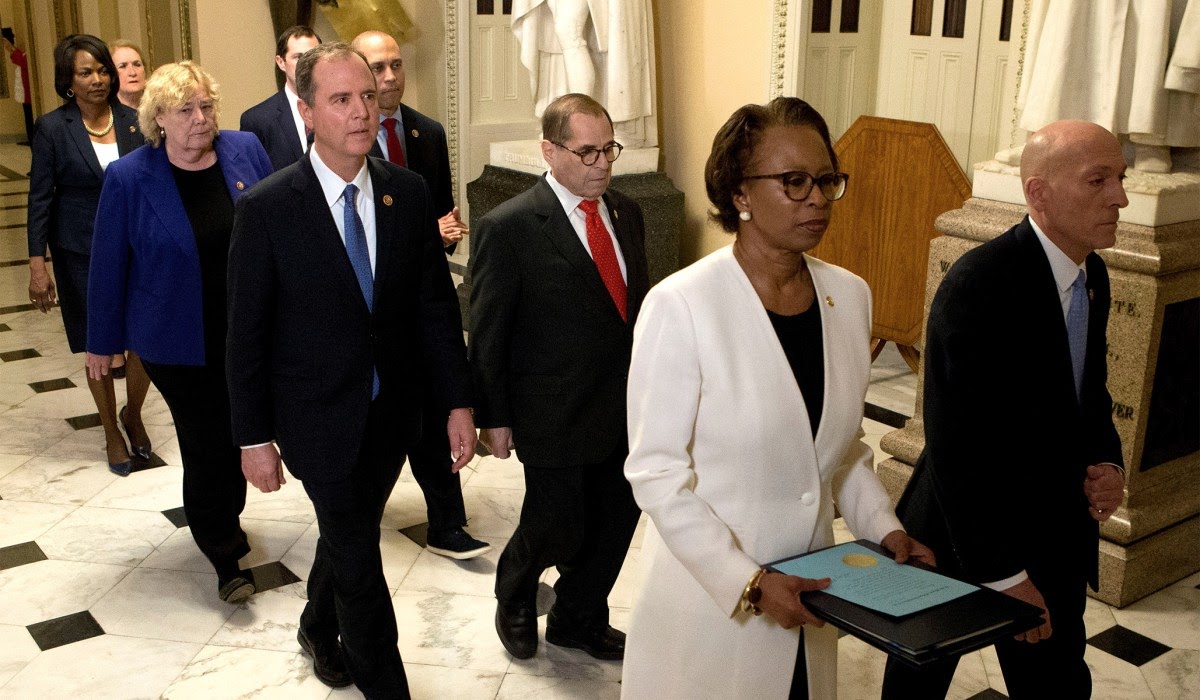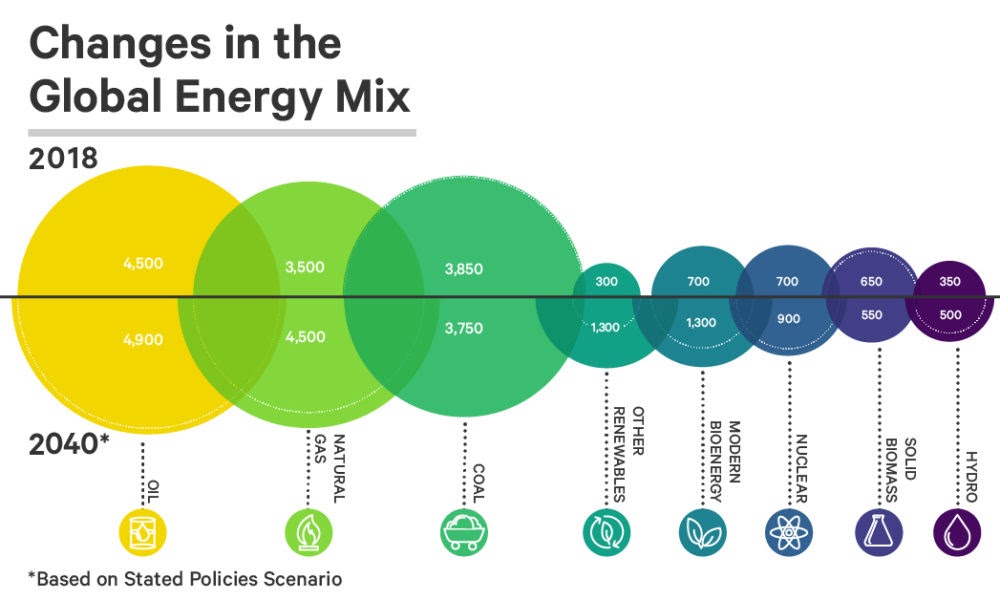Acquitted – NOT Guilty: The Democratic House prosecuted the case (impeachment) and then it was sent to the Republican Senate to serve as juror of the case presented by the House.
The House Democrats didn’t allow the president to have his attorneys represent him, cross examine witnesses or call any of their own witnesses for the “trial” phase of the impeachment. They called 17 witnesses from the Democrat’s side, served up thousands of pages of one sided documents to make their case…passed the articles of impeachment (their indictment) and sent it to the Senate.
The Senate allowed the House Democrats to present their case, the president’s attorneys to respond and make their case against the article of impeachment and acquitted President Trump, finding him NOT guilty as charged.
Hey DC, How About Governing for a While: The progressive left’s absurd preoccupation with “resistance” and allowing the crazy far left fringe part of their party dominate the national agenda with impeachment and resistance hopefully has come to an end.
We need a bipartisan approach to the challenges facing our country and it would be nice if the Democrats at least attempted to reach out across the aisle and work on solutions…rather than passing politically motivated pieces of legislation that have no chance of passing.
STOP the gamesmanship. STOP wasting our taxpayer’s dollars. STOP wasting our time and your time when you should be doing what’s best for our country.
A policy and style disagreement with our president does NOT justify an impeachment and the baggage that comes with it. If you don’t like him don’t vote for him this fall. Elections have consequences and your voice as well as those who support the president deserve to be heard.
RNC National Committee Members: Michigan is lucky to be represented by two well respected, liked and effective members on the Republican National Committee by National Committeewoman Kathy Berden and Committeeman Rob Steele.
I’ve been at virtually every RNC meeting since 2005 and rarely has a state had a team so well positioned to make sure Michigan’s voice is heard.
I wish them the best of luck in the re-election and can rest assured that our party, our state and our activists are well represented.
-Saul Anuzis

Amazon will help US if you say yes: At NO cost to you, you can help the 60 Plus Foundation in its efforts to support conservative policies to protect senior citizens, get rid of the death tax and defend social security and medicare using sound fiscal policies.
Sign up…and Amazon will donate 0.5% of what you spend to the Foundation! Please help us out by signing up here…at NO cost to you!Sign Up Link
Weekly News Video Summary:
Trump proudly displays ‘Acquitted’ headlines, mere feet from Pelosi at prayer breakfast
President Trump proudly displayed two newspapers with blaring “Acquitted” headlines Thursday morning, waving them before a National Prayer Breakfast audience in his first appearance since he was declared not guilty in his Senate impeachment trial.
Pence: Pelosi ripping up Trump’s State of the Union speech ‘was a new low’
In an appearance on “Fox & Friends,” the vice president said he “wasn’t sure if she was ripping up the speech or ripping up the Constitution” when he saw Pelosi’s gesture.
Trump bashes ‘Medicare for All’ in swipe at Sanders
President Trump took a shot at Democratic presidential candidate Bernie Sanders, declaring at his annual State of the Union address, “We will never let socialism destroy American health care!”
Watch our Weekly News Summary Video Here
Donald Trump just got the best polling news of his presidency

Donald Trump has never made it to the 50% approval mark in Gallup polling, which makes him the first president never to rise above the halfway mark in the poll. But he’s pretty damn close right now.
In Gallup’s latest poll released Tuesday morning, 49% approve of the job Trump is doing in office while 50% disapprove. Trump’s previous high was in April 2019 when he got to 46% approval in Gallup. The first poll Gallup conducted when Trump became president in January 2017 showed him at 45% approval.
Trump’s current 49% approval puts him ahead of where his predecessor — Barack Obama — was at this same time in his first term. (Obama was at 46% approval.) Which is absolutely remarkable, given the first 3+ years of Trump’s presidency and the fact that he became just the third president in American history to be impeached by the House last month.
The Democratic-led impeachment effort likely contributed to Trump’s strengthening numbers. You see it most clearly in the fact that 94% of self-identified Republicans in the poll said they approve of the job Trump is doing — up 6 points from those who said the same thing in Gallup’s poll last month. And that 94% approval is Trump’s highest rating — by 3 points — ever among Republicans.
Trump Job Approval at Personal Best 49%

President Donald Trump’s job approval rating has risen to 49%, his highest in Gallup polling since he took office in 2017.
The new poll finds 50% of Americans disapproving of Trump, leaving just 1% expressing no opinion. The average percentage not having an opinion on Trump has been 5% throughout his presidency.
Trump’s approval rating has risen because of higher ratings among both Republicans and independents. His 94% approval rating among Republicans is up six percentage points from early January and is three points higher than his previous best among his fellow partisans. The 42% approval rating among independents is up five points, and ties three other polls as his best among that group. Democratic approval is 7%, down slightly from 10%.
The 87-point gap between Republican and Democratic approval in the current poll is the largest Gallup has measured in any Gallup poll to date, surpassing the prior record, held by Trump and Barack Obama, by one point.
Why the Iowa voting fiasco matters

The Monday night caucuses were the biggest moment in four years for Iowa Democratic party. They screwed it up beyond belief. They had one task: to produce timely, accurate, and reliable vote totals, and they failed completely. TV anchors sat around filling time, waiting for Godot to show up with election returns. None appeared. The candidates themselves began flying off to New Hampshire for next week’s primary.
It was a fiasco, a huge embarrassment not only for state officials but for the national party. It denied the winners their big moment before the TV cameras on election night — and the fundraising bonus that goes with it. It left the losers wondering if they’ve been robbed. It left Iowans questioning whether they will ever hold caucuses again or keep their prime spot as first-in-the-nation. The bitterness over this mess will linger, and the Republicans will exploit it.
To begin with, this failure makes the Democratic party look ridiculous. The damage is compounded because they are the ‘party of government’. That’s their brand, and it has been since Franklin Roosevelt proposed the New Deal. Democratic policies almost always call for more government, run from Washington. When people point to social or economic problems, Democrats reflexively respond with laws, regulations, and bureaucracies to tackle them (and taxes to pay for them). That prospect looks a lot less appealing when you can’t count the votes in a high school gym. It doesn’t encourage people to say, ‘These are just the people to handle my healthcare.’
Second, Bernie’s voters came into the caucuses (a) thinking they would win, and (b) not trusting the party apparatchiks to give them a fair shake. This mess deepens those fears. If they don’t come away victorious, many Sanders supporters will think they were cheated. That’s a problem for Democrats, who need a united party to win in November. The fiasco in Iowa only deepens the mistrust between Bernie’s supporters and the party’s traditional center-left. It was already deep, and ‘mistrust’ may be too mild a word.
Third, the confusion over vote-counting in Iowa underscores a larger, more ominous problem: Americans’ declining confidence in the integrity of their elections and the legitimacy of the winners. For democracy to flourish, voters must believe elections are fair and the winners honestly chosen. The public’s growing skepticism is fed by party leaders who refuse to accept defeat graciously. That’s more than simple courtesy. It is the foundation for the peaceful transfer of power between opposing parties, democracy’s great achievement. That transfer requires that the losers publicly acknowledge the winners’ legitimacy.
They have lost it… “We’re losing our damn minds”: James Carville unloads on the Democratic Party

James Carville is “scared to death” of the November 2020 election.
In a rant on MSNBC that went viral on Tuesday evening, the longtime Democratic strategist vented his concerns about the party’s prospects for beating Donald Trump, taking particular aim at the party’s leftward lurch.
“Eighteen percent of the population controls 52 Senate seats,” Carville said. “We’ve got to be a majoritarian party. The urban core is not gonna get it done. What we need is power! Do you understand? That’s what this is about.”
His diatribe took place against the backdrop of an Iowa caucus that had fallen into chaos and amid a rancorous ongoing debate among Democrats over the party’s direction. He took particular aim at Sen. Bernie Sanders, who he fears could lead the party to defeat in November.
Carville’s lament distills a concern among the Democratic Party’s establishment: Will ideological purity and playing to the base cost the Democrats victory in November? For Carville, at least, “We have one moral imperative, and that’s to beat Donald Trump.” That his comments went viral speaks to the sense of urgency among Democrats, even as it only fuels the debate over the direction of the party.
I spoke with Carville this week by phone. We discussed where he thinks the Democrats went wrong, what it will take to build a majoritarian party in this climate, and why he doesn’t have a lot of confidence in the current field of candidates.
Why Bloomberg may be real winner of Iowa caucuses

Everyone laughed when Michael Bloomberg parachuted into the Democratic presidential race in November and announced he would skip all of the early contests in small states and focus instead on delegate-rich states in the March primaries.
That strategy doesn’t seem so silly now. Iowa’s fiasco of a caucus process makes it more likely there will be a muddled outcome and a continuation of a divided Democratic field of candidates.
Iowa’s failure to create a clear picture of the race means that all of the Democratic candidates other than Bloomberg will have trouble raising needed money for those big primaries in March.
Bloomberg, of course, has deep pockets that stretch to his shoes: in his first month of campaigning, he spent over $200 million – more than double what Donald Trump spent in all of the GOP primaries in 2016. Bloomberg has also been able to visit 24 states and 58 cities in the last month, while other candidates have been confined to diners in Iowa and New Hampshire.
The one Democrat who so far raised significant money from small donors he can continue to tap for support is Bernie Sanders. But Sanders is the Democratic Party’s worst nightmare: an avowed socialist with little appeal to moderate independents and a reputation of not playing well with other Democrats.
One Democratic officeholder in a Trump-leaning state told me he was terrified that Bernie could be the nominee: “Not only would he lose my state but he would depress turnout for Democrats down-ballot. In this election, we are electing state legislators who will redraw district lines for Congress that will last a decade. Bernie could put my party in permanent minority status here.”
Bloomberg promises an alternative to Democrats who fear and loathe Bernie. He has promised to spend millions on behalf of other Democrats if he is the nominee, providing valuable support against Republican challengers.
House Dem Admits They Block Legislation Because ‘We Don’t Want to Give the President a Win’

Rep. Mikie Sherrill (D., N.J.) expressed frustration with her Democratic colleagues at a recent town hall, admitting they block legislation because they “don’t want to give the president a win.”
Speaking at a Livingston, New Jersey, town hall on Thursday, Sherrill revealed the “shockingly different mindset” of congressional Democrats who prioritize resisting President Donald Trump over passing legislation that could help their constituents.
“When I go, you know, I’ve gone up to people and said, ‘I need to get this piece of legislation passed,’ and they say ‘Oh yeah, we just passed it,'” Sherrill said. “I said, ‘Yeah, we just passed it. I need the Senate to pass it and I need the president to sign it,’ and they said ‘Well, we don’t want to give the president a win.'”
Sherrill’s comments contrast with Democrats’ longstanding criticism of Senate Majority Leader Mitch McConnell (R., Ky.) for blocking Democratic initiatives in the Senate. Speaker of the House Nancy Pelosi (D., Calif.) unveiled a visual representation of McConnell’s “legislative graveyard” in June, accusing the Kentucky Republican of blocking legislation for political gain.
Why Impeachment Failed

House Democrats rushed through a botched process and then complained bitterly and endlessly that Senate Republicans wouldn’t do their work for them.
Unless more incriminating evidence emerges to dramatically alter public perception, the impeachment trial of Donald Trump is effectively over.
It’s comforting, no doubt, to believe that Trump has survived this entire debacle because he possesses a tighter hold on his party than Barack Obama or George W. Bush or any other contemporary president did. But while partisanship might be corrosive, it’s also the norm. In truth, Trump, often because of his own actions, has likely engendered less loyalty than the average president, not more.
It’s difficult to recall a single Democratic senator throwing anything but hosannas Obama’s way, which allowed the former president to ride his high horse from one scandalous attack on the Constitution to the next. In 1998, not a single Democrat voted to convict Bill Clinton, who had engaged in wrongdoing for wholly self-serving reasons, despite the GOP’s case being methodical and incriminating. Attempting to impeach a president for lying under oath to a federal grand jury in a sexual-harassment case in an effort to obstruct justice was, as Alan Dershowitz and many others argued, “sexual McCarthyism.” Few Democrats, though, claimed Clinton was innocent, because no one could credibly offer that defense; they merely reasoned that the punishment was too severe for what amounted to a piddling crime.
The chances of any party’s removing its sitting president without overwhelming evidence that fuels massive voter pressure are negligible. It’s never happened in American history — unless you count the preemptive removal of Richard Nixon — and probably never will. Democrats are demanding the GOP adopt standards that no party has ever lived by.
Perhaps if the public hadn’t been subjected to four years of interminable hysteria over the United States’ imaginary decent into fascism, it might have been less apathetic toward the fate of “vital” Ukrainian aid that most Democrats had voted against when Obama was president.
In Kyiv, Turkey’s Erdogan Denounces Russia’s ‘Illegitimate’ Annexation Of Crimea

On a visit to Kyiv, President Recep Tayyip Erdogan reiterated Turkey’s support for Ukraine’s territorial integrity, emphasizing that Ankara doesn’t recognize Russia’s “illegitimate” takeover of Crimea.
Erdogan was speaking at a news conference in the Ukrainian capital on February 3 following talks with Ukrainian President Volodymyr Zelenskiy.
The Turkish leader said that Turkey will help build housing for “nearly 500 families” of Crimean Tatars who have relocated to other parts of Ukraine following the annexation of the Black Sea peninsula in March 2014.
Rights groups and Western governments have denounced what they describe as a campaign of repression by the Russian-imposed authorities against Crimean Tatars — an Turkic ethnic group — and others who have spoken out against Moscow’s military seizure and occupation of Crimea.
Erdogan, who has been strengthening ties with Russia in recent years, has adamantly opposed Russia’s moves in Crimea, particularly speaking up for the rights of the Crimean Tatars.
Seniors’ Sweet Tax Breaks Have Become a Target

As Americans begin the challenge of filling out their tax returns this year, one taxpayer demographic generally pays less than others: senior citizens.
Tax breaks for seniors cost states approximately $27 billion a year and will more than double in the next decade, according to a recent study from the progressive Center on Budget and Policy Priorities in Washington, D.C. That money could pay for schools, roads and other needs, critics argue.
Giving a break to seniors based on their age rather than their income or financial status dates from a time when people had shorter lives and fewer investments. But the financial situation of seniors has improved overall, leaving some experts to question whether the tax breaks make sense.
“I think part of it is because there is sort of an image of seniors living on fixed incomes struggling to get by,” said Elizabeth McNichol, who wrote the study. “I think that’s stuck in peoples’ heads. The reality is the senior poverty rate is less than for other people and certainly less than for younger people and children.”
The World’s Projected Energy Mix, 2018-2040

Since 1977, the International Energy Agency (IEA) has put together the World Energy Outlook, a highly anticipated annual report that looks towards the future of energy production and consumption on a global basis.
In the latest edition, the report dives into two very different policy scenarios that help illustrate the choices and consequences we have ahead of us.
In this post, we’ll look at each policy scenario and then dive into the associated numbers for each, showing how they affect the projected global energy mix from 2018 to 2040.
There’s Nothing Special About Iowa. Time To Let Other States Vote First. Surely we can do better than this.
Last night’s Iowa caucuses were a total disaster. Candidates spent millions of dollars, volunteers canvassed for months, and the media spilled untold amounts of ink, pixels, and TV time building up to the first nominating contest in the 2020 Democratic primary—but it was all for naught, as the Iowa Democratic Party totally fumbled the one event that puts the state on the political map. Someone will eventually be declared the winner, but it will hardly matter by then. Campaigns have moved on to New Hampshire, and the news cycle will quickly move on to tonight’s State of the Union address and the next primary contests. Any bounce (or lack thereof) coming out of Iowa has been rendered meaningless.
Already, the mess is prompting calls for the Democratic Party to abandon the caucus format in Iowa, or to replace Iowa as the first state to vote, or both. (For more on all that, read Reason Features Editor Peter Suderman’s obituary for the Iowa caucuses here.)
But that prompts an obvious follow-up question. If Iowa doesn’t go first, which state (or states) should?…
…The process could be made even more fair if the clusters of states are chosen by lottery. That was the basis of a bipartisan idea pitched by Debbie Dingell, the wife of late Democratic Michigan congressman John Dingell, and Saul Anuzis, then-chairman of the Michigan GOP.
Under the Anuzis-Dingell Plan, the 50 states would be sorted into six geographic regions. A lottery would be held to determine which states would vote on each of five primary election dates, each separated by a month. Each date would include 10 states—with at least one state, and no more than four states, from each of the six geographic regions.

